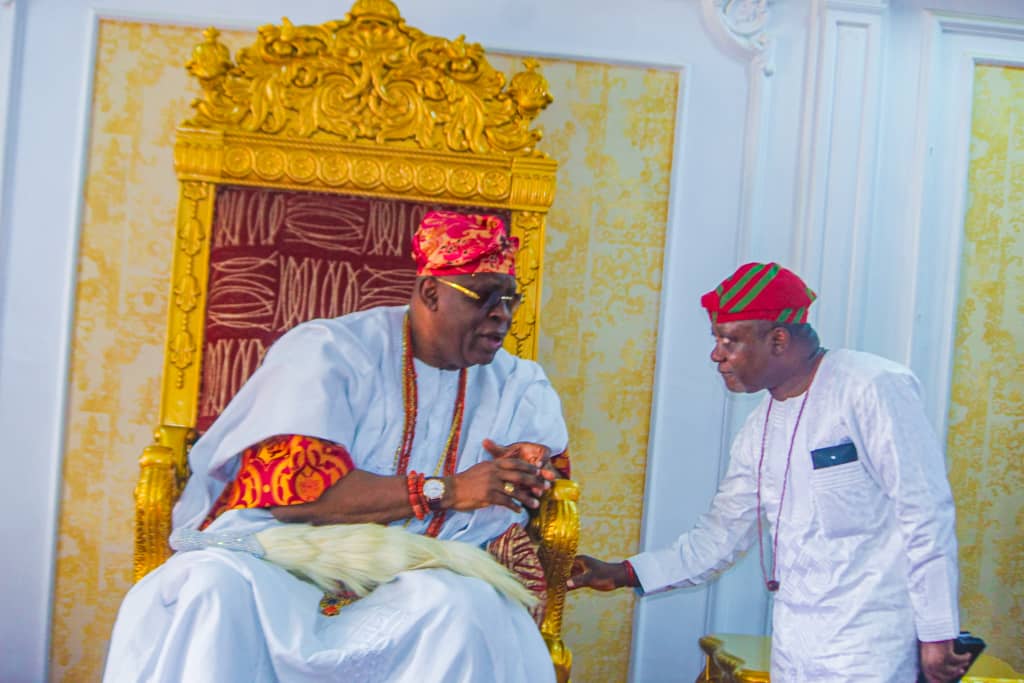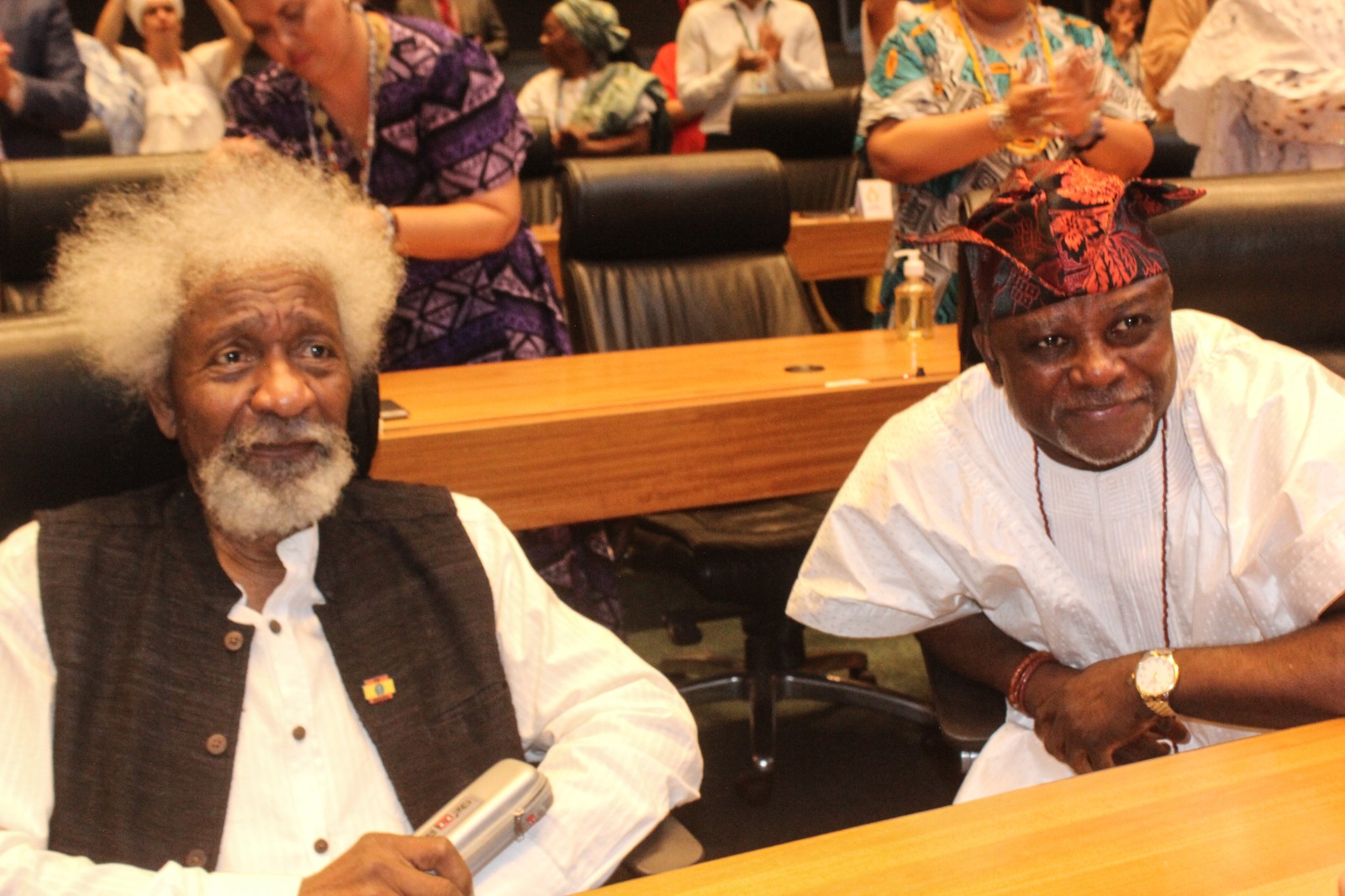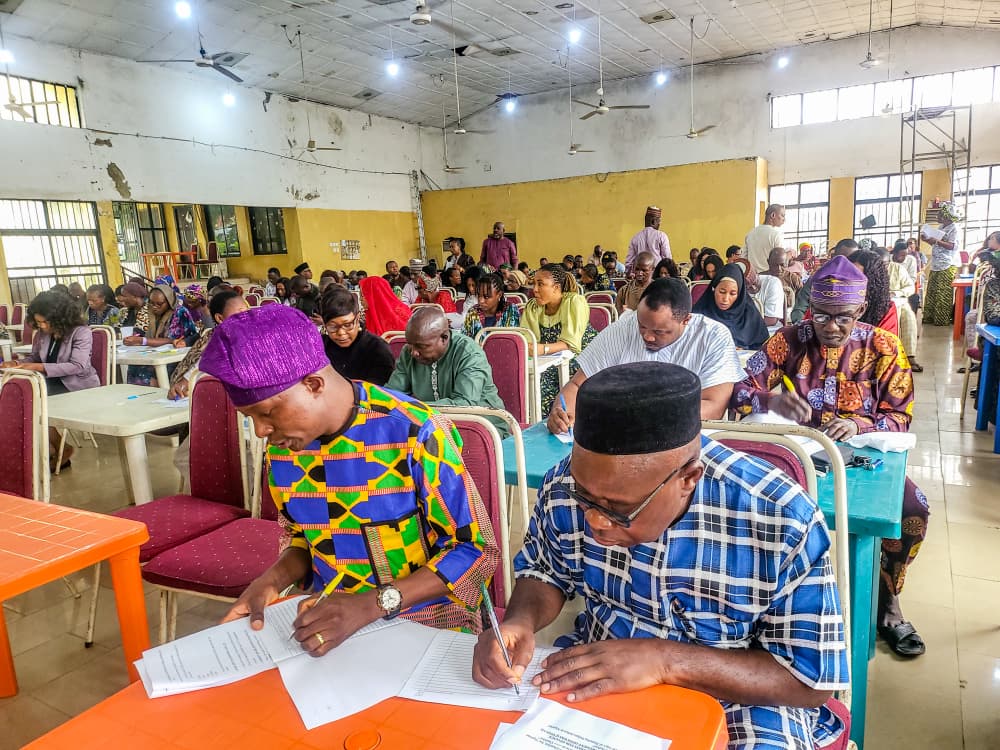For the new Director-General/Chief Executive Officer, National Council for Arts and Culture (NCAC), Mrs. Dayo Keshi, the 2014 edition of National Festival of Arts and Culture (NAFEST 2014) held in Abakaliki, Ebonyi State Capital, will go down memory lane.
Not just because she was hosting the nation’s major cultural event for the first time, it was more of the fact that for the first time in the history of the festival, the opening ceremony drew The Presidency’s attention.
There is no doubt that the presence of Nigeria’s second citizen, Vice President, Namadi Sambo, who represented President Goodluck Jonathan, added value to the 28th edition of the cultural fiesta. Even the cheers from the crowd bore testimony to the art community’s excitement of that great expectation.
Many concluded that It was not only worrisome, it was equally becoming embarrassing to the arts community that a national festival of this magnitude, which debuted as far back as 1970, has never attracted the attention and participation of the same presidency that clamours so much about repositioning the culture sector for job creation and economic empowerment.
Declaring the festival open, Mr. President pledged greater commitment to the development of the nation’s creative industry. He expressed delight that in spite of numerous challenges confronting the nation, NAFEST held in a convivial atmosphere, and that, it has become obvious that the yearly festival is not only strategic to the protection of the people’s culture and tradition, but also has great potentials for engaging the teaming unemployed youths.
According to him, there is a nexus between arts and culture and the economic growth of any nation. “The event is high profile in nature and the celebration will manifest abundant grace for the nation outside the country,” he said.
With this year’s theme as, “Celebrating Nigeria at 100: The Role of Culture as Vehicle for National Unity,” Mr. President stated that the one-week fiesta would provide another platform to re-echo the centenary message with which the nation celebrated its 100 years of nationhood.
“NAFEST is affirming that there is a lot from our culture that binds us. As we move into another century, it is our collective duty to leverage on these for promoting our oneness and uniqueness as Nigerians and as a way of moving the dreams of our founding fathers nearer to its realization,” Mr. President stated.
Commending the Executive Governor of Ebonyi State, Chief Martin Elechi, for taking the challenge of hosting this year’s festival, Mr. President highlighted the place of the private sector in promoting the festival. He therefore assured the art community that government would create the enabling environment for any organisation or group that picks interest in investing in the nation’s culture and tourism sector to come into it.
Welcoming guests to the state, Governor Elechi observed that in spite of colonial masters’ attempt at destroying Nigeria’s culture by pitching it against religion, both have become too great pillars of the world’s civilisation.
“Both religion and culture have become such partners in progress that some religions invoke the adoption of certain cultural observances in the reinforcement of religious beliefs and expressions.
“It was in consideration of the inseparability of culture and development that the ruling People’s Democratic Party (PDP) enshrined in its 2007 election manifesto, the inclusion of cultural habits, expressions and value reclamation in public governance.
“We in Ebonyi State, in recognition of the impact of culture in restoring discipline, peace, law and order in governance, embarked on the building of cultural centres across different cultural groups in the state as meeting points where culture is celebrated and conflicts, harmonised,” the governor said.
Speaking on the theme of the festival, Elechi noted that Nigerian cultural practices received punches and battering from the colonial masters and still survived are testimonies of the indestructibility of our cultural practices and values.
Honourable Minister of Tourism, Culture and National Orientation, Chief Edem Duke, in his remarks, recognised culture as a common wealth and expressed the need to cherish it. He noted that culture has become a platform for national unity as displayed by participants who undermined ethnic, political or religious sentiments and unite as one indivisible people with a common destiny.
“Participants from across the country and the Federal Capital Territory have come to buttress the fact that culture is the value and the attribute with which we stand together as a nation.”
Chief Duke expressed delight that the festival, which was postponed due to the sudden outbreak of Ebola Virus Disease, was coincidently opened the day World Health Organisation (WHO) declared the nation free of the virus. He congratulated not only the governor of the state, but also the immediate past Minister of Health, Prof. Christian Onyebuchi Chukwu, who incidentally hails from Ebonyi State, for his effort at curtaining the epidemic.
Festival director and NCAC boss, Keshi, said she was impressed with the turnout of participants. According to her, the festival holds great potentials for the country and should be encouraged by all. She also hoped to raise the bar of the festival in subsequent editions with a view to attracting private sector patronage.
“I will be looking forward to raising the bar for NAFEST and put more structures in place to make it less dependent on budget. This sector holds a lot of economic value for the country and it should be well packaged and presented in such a manner that it will attract private sector’s sponsorship,” she said.
The second day of the festival witnessed the creative ingenuity of Nigerians, as indoor activities commenced at various venues. Events featured include dance drama from participating states, paintings; children essay writing and traditional wrestling competitions.
Working around the central theme, “Celebrating Nigeria At 100: The Role Of Culture A
s A Vehicle For National Unity,” each group and state attempted to outdo one another in the various competing events, but not without losing focus on the intrinsic message as the nation begins a journey towards another 100 years of common existence.
States such as Kogi, Ebonyi, Bayelsa and Akwa Ibom presented well-choreographed performances that bore witness to high-level commitment to theatre performance.
Tilted, Pot of Unity, Kogi State featured three major ethnic groups in Nigeria, their dominant occupations and what each holds for the survival and sustenance of mother Nigeria represented by a female figured cladded in Nigerian in our national colours of green, white and green.
Akwa Ibom not only displayed richness in colours, which the state is known for, it also presented an elaborate dance drama that captures Nigeria at inception before the setting in of dissenting voices of religion, politics and ethnicity. What follow is division, violence and killings and it takes divine intervention to resolve the conflict and cure the afflicted nation of poverty and deprivation occasioned by segregation.
Ebonyi State Cultural Troupe in their presentation holds imperialists responsible for taking away the symbol of the nation’s strength. With resilience and patriotism however, the oppressors were defeated, but not without a prize. Some warriors patriotically laid down their lives for the freedom of the society. The Troupe expressed the need not to let the labour of such heroes be in vain and they made their exit.
Generally, there was an ample use of costume while the stage was fully lit for embellishment. The use of space by performers was encouraging and buttressed professionalism and adequate knowledge of stage rules. Multiplicity of stage doors at the main bowl of the newly inaugurated International Conference Centre provided the needed technicality to the show.
Also holding on the second day was the Festival Colloquium – the intellectual segment of the festival. The forum attracted resource persons and eminent scholars from the academia, who took time to appraise the way forward for the sector.
The keynote, “Celebrating Nigeria At 100: The Role of Culture in National Development,” was delivered by Professor Eddie Iji of the Department of Theatre Arts, University of Calabar.
Other papers include, “Literature, Creativity and Nigerian Youth in the Next Century,” by Mr. Victor Anoliefo, “Quill Master, Abuja Literary Society and Postage Stamp: A Means of Cultural Promotion and Unity,” by Mr. Taye Olaniyi.
Other discussants include Professor Ojo Rasaki Bakare, Department of Theatre and Media Arts, Federal University, Oye-Ekiti, Dr. Eugene Nweke of the Department of Political Science, Ebonyi State University, Abakaliki, as well as Mallam Ado Yahua, Director, Human Resources Department, NCAC, Abuja.
Considering the calibre of resource persons and the topics under discussion, NCAC boss, Keshi, expressed regret that the very group of people for whom the talks were prepared were not part of the forum.
She promised to get the youths to participate in the colloquium in subsequent editions. “You have brought the best brains to speak, but the consumers need to be here. Moving forward, we should bring in our young intellectual, they are the ones who stand to benefit from the talks”, she said.
Professor Chukwuemeka Ike was the chairman of the segment and in his remarks, he emphasised the need for Nigerians to be proud of their culture and tradition. According to him, he was involved in the drafting of Nigerian Cultural Policy in 1988 and is always enthusiastic to be part of any activity that is geared towards the promotion of culture.
He also used the opportunity to decline the common slang that the world is a global village. According to him, it was deliberately coined by the West to enslave Africa and Africans should desist from being further deceived.
Culled from: http://ngrguardiannews.com/artnew/184239-nafest-2014-a-glorious-beginning-for-keshi


